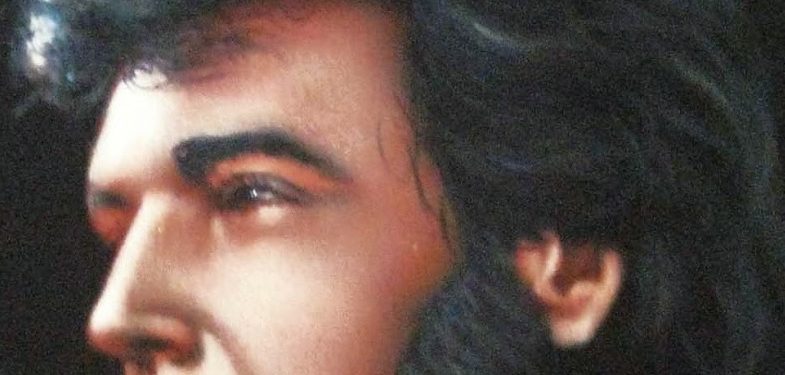Atwell pieced his next question together slowly, a word at a time. “Why would Sarti care if one of Mitnick’s guys has gone missing?”
“Sarti doesn’t want Mitnick thinking he vanished this Sergei.” I watched for comprehension to come over Atwell’s face and when it didn’t come I continue, “Sarti doesn’t want a fight with Mitnick.”
Suspicion sharpened Atwell’s features, trying to detect if I was lying to him. “Sarti already damned near started a war with what he pulled in the casino.”
I shrugged causing my chair to move an inch along the linoleum floor with a sharp cheep that took me back to parochial school. There was a brief flash of memory involving bullies and navy blazers. I ignored it and went on. “Sarti claims that stunt was just to show Mitnick who was boss in this here town.” The last bit came out in a cowboy sing-song, reducing everyone in this affair to caricatures.
“Jesus, that was a dangerous play.” A bit of relief and wonder mixed in Atwell’s voice. He leaned back in his chair again, eyes drifting off to wherever they went when he evaluated truth and lies for how they impacted the world of Atwell. His eyes only came up to wave an approaching waiter away. When he was sure that he was gone, Atwell continued, “Any clues?”
“He was at the Factory a few days ago.” I shrugged and sipped my coffee. “He hasn’t been seen since.” I watched Atwell, letting him roll around this new information for a moment then adding, “Mitnick is having a get-together this evening. I figured I’d asked around then, see if maybe it was some kind of internal dispute.”
Atwell brightened with a glimmer of hope, this possibility not having occurred to him. Maybe to Atwell the fewer Russians there were in town the better. “So you think you’ll see Mitnick?”
“I think he wants to see me. At least for a bit. Judging by what he said to me the last time we talked he’s more interested in showing me the good life.” The last three words hung in the hair, italicized by the incredulity of my tone. “It’s not in town, so he can pretty much make it whatever kind of party he wants.”
Atwell smiled the anticipatory grin of a man who doesn’t get out much . “You dog.” I didn’t mirror his lechery. I didn’t want to pick up a venereal disease and I hadn’t had a drink in two years, so I was looking forward to the party about as much as sitting in dentist’s waiting room. With what I had planned with Sophie, though, it could still be fun.
After a few moments of my silence Atwell dropped the smile and asked, “I can see why he invited you. You’re so much fun.”
“It’s an opportunity for him to reward his people and let any locals he’s invited show what loyalty to him can get. So I doubt he’s expecting me to be the life of the party.” Little did he know.
Atwell leaned back in his chair again and didn’t speak, a sure sign that he was thinking. I was starting to detect the specter smell of a faint burning when he sat up again. “I want you to tell Mitnick something. In confidence.”
“What’s that?” Atwell rarely managed to surprise me. That I had no idea what he was about to say got my attention.
Atwell double-checked to make sure there wasn’t anyone around, then spoke even quicker and quieter than we already had been. “There’s an inspector named Sebastian Rotella who’s heading up an investigation into Mitnick. Let him know the name.”
“You mean like a cop?” The question sounded dumb the moment it came out of my mouth, but for some reason I was surprised the police had other functionaries beyond the black knights that protected Old Town with their assault weapons and body armor.
Atwell nodded a yes with a seriousness I wasn’t sure my question deserved.
“Why’s he sniffing around Mitnick?”
“Apparently, it’s standard procedure to examine rich foreign nationals that show up with questionable passports. Mitnick’s is Greek.”
I let out a non-committal noise, actually impressed by the idea the police were active enough to track such things and competent enough to have thought to do it. I felt some unheralded piece of admiration form in my chest for this Rotella, a man I had never met or seen. It was strange enough that I continued to sit in silence, wondering at this new sensation. Eventually, this caused an inspecific concern in me that resulted in me asking, “Why do you want Mitnick to know this?”
Atwell smiled, proud of his own cleverness. “I don’t care if Mitnick knows. But I want Mitnick to know you have access to this kind of information and you gave it to him.”
While it might be a way to gain Mitnick’s trust, I countered with, “And what if Mitnick decides he doesn’t like being investigated by Rotella?”
Atwell smirked slightly, clearly unworried about this. “Mitnick probably already knows. Also, if he did anything to interfere with the investigation it would cause him more trouble than the investigation itself. He’ll know he just needs to be careful.” Atwell shrugged, all easy confidence. “Like I said, it’s just something for you to gain Mitnick’s trust.” We lapsed back into silence, this plan of action causing an uneasiness in me I couldn’t readily translate into a counter-argument. After a time Atwell prompted me back with a, “Yeah?”
I nodded.
“Good. Let me know how it goes.” Atwell put down a Euro coin for an obstinately American tip. He disappeared out a door in the back that was little more than an outline in the wall, another holdover from when this place was inhabited by a different class of people with a different class of intrigues. I sat there and finished my coffee, letting those ghosts move around me as I thought about future possibilities.
























